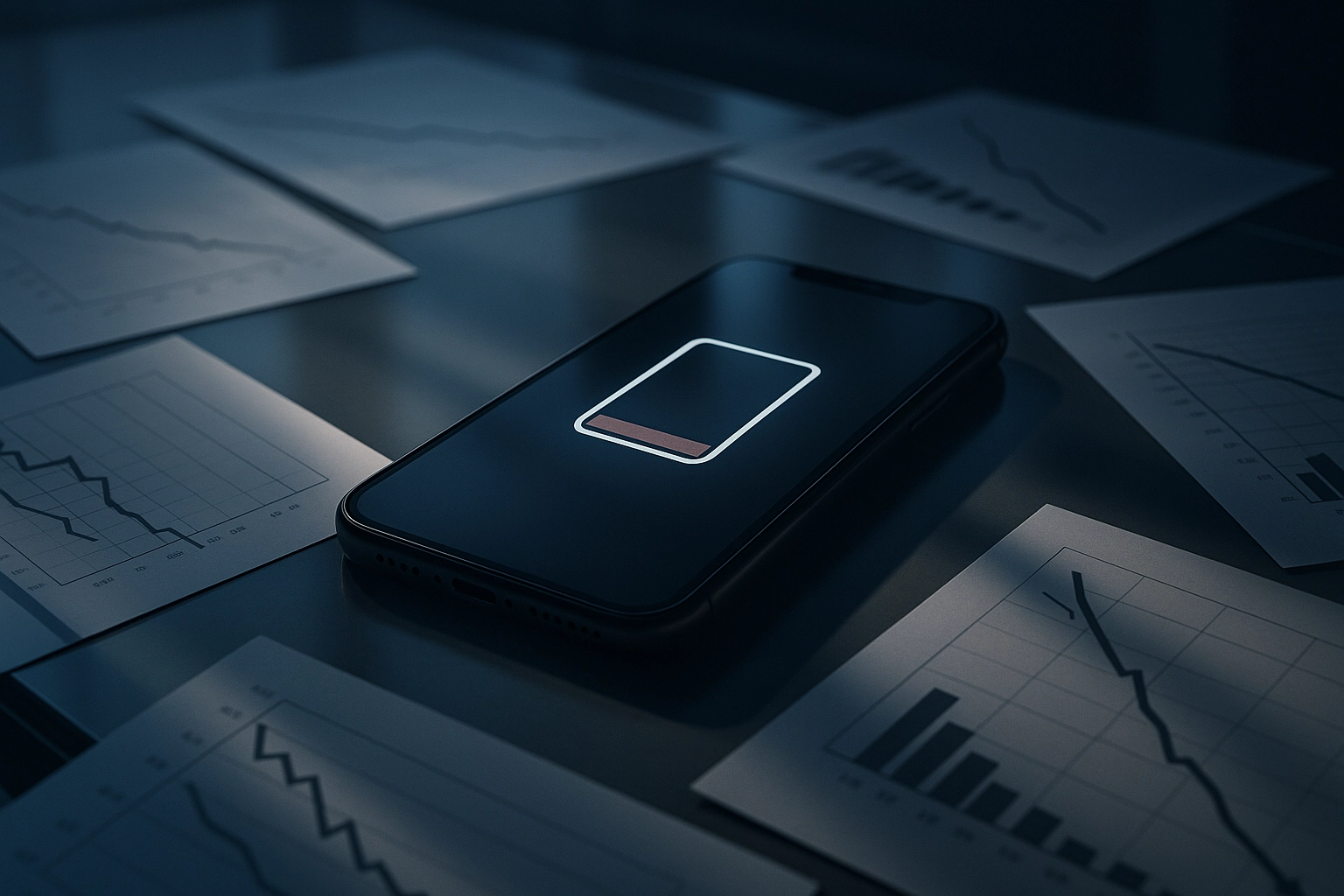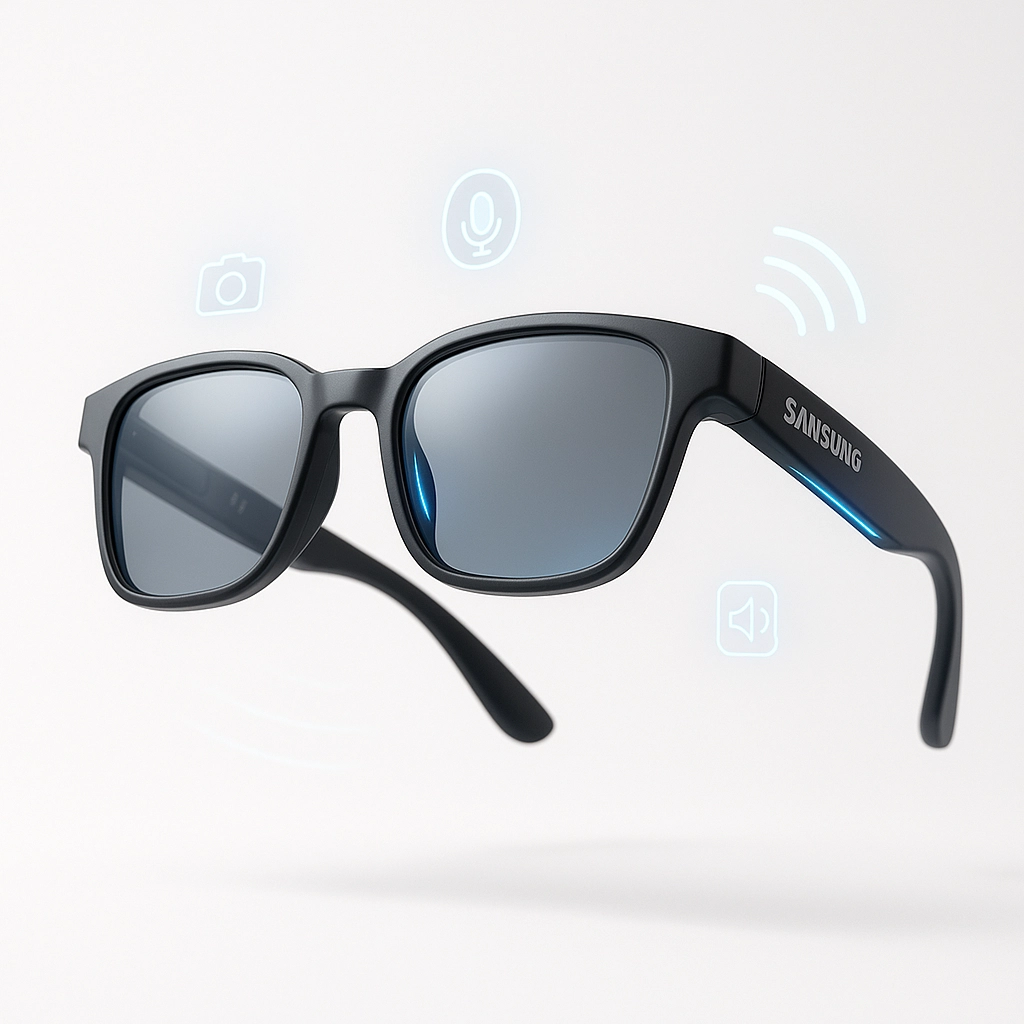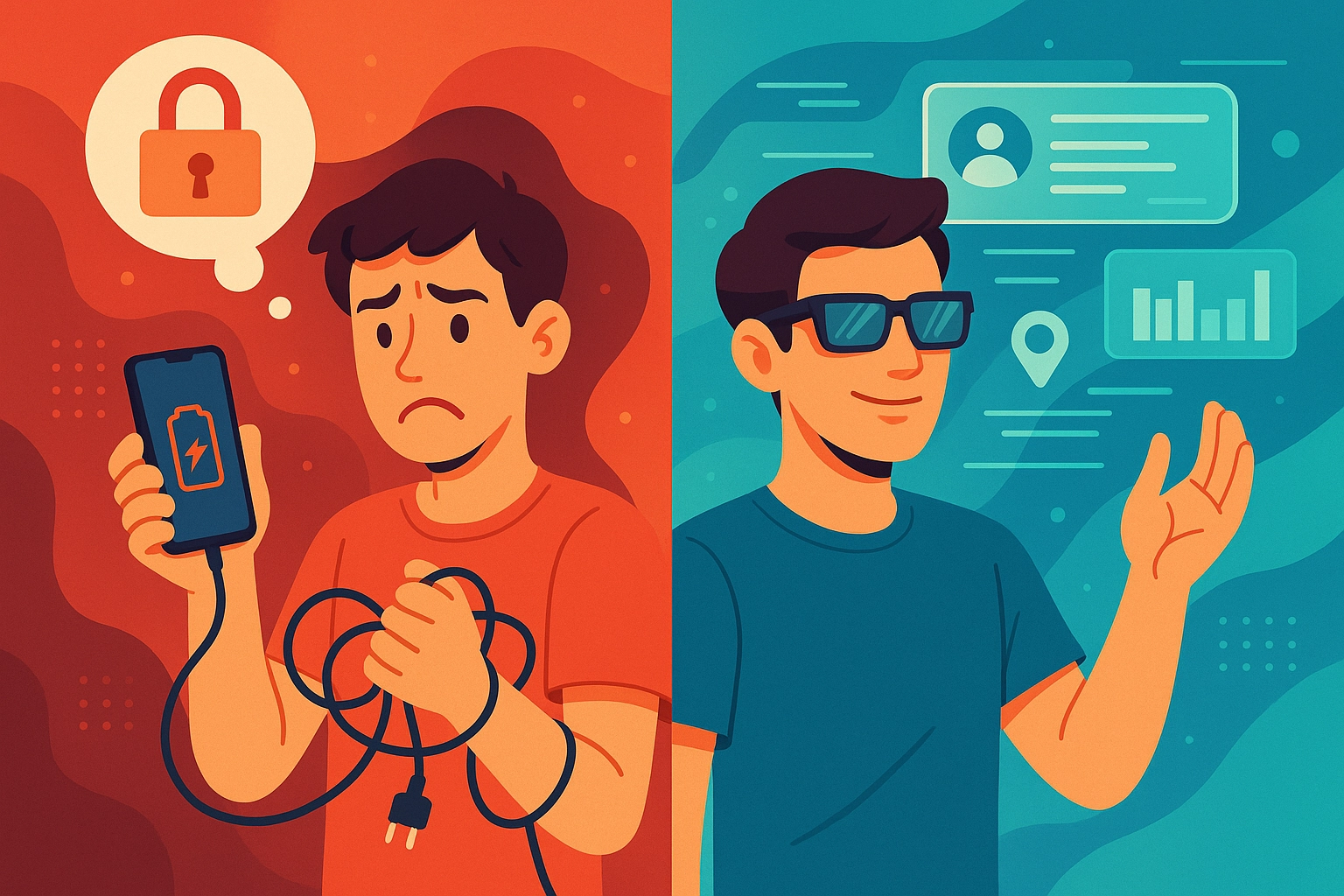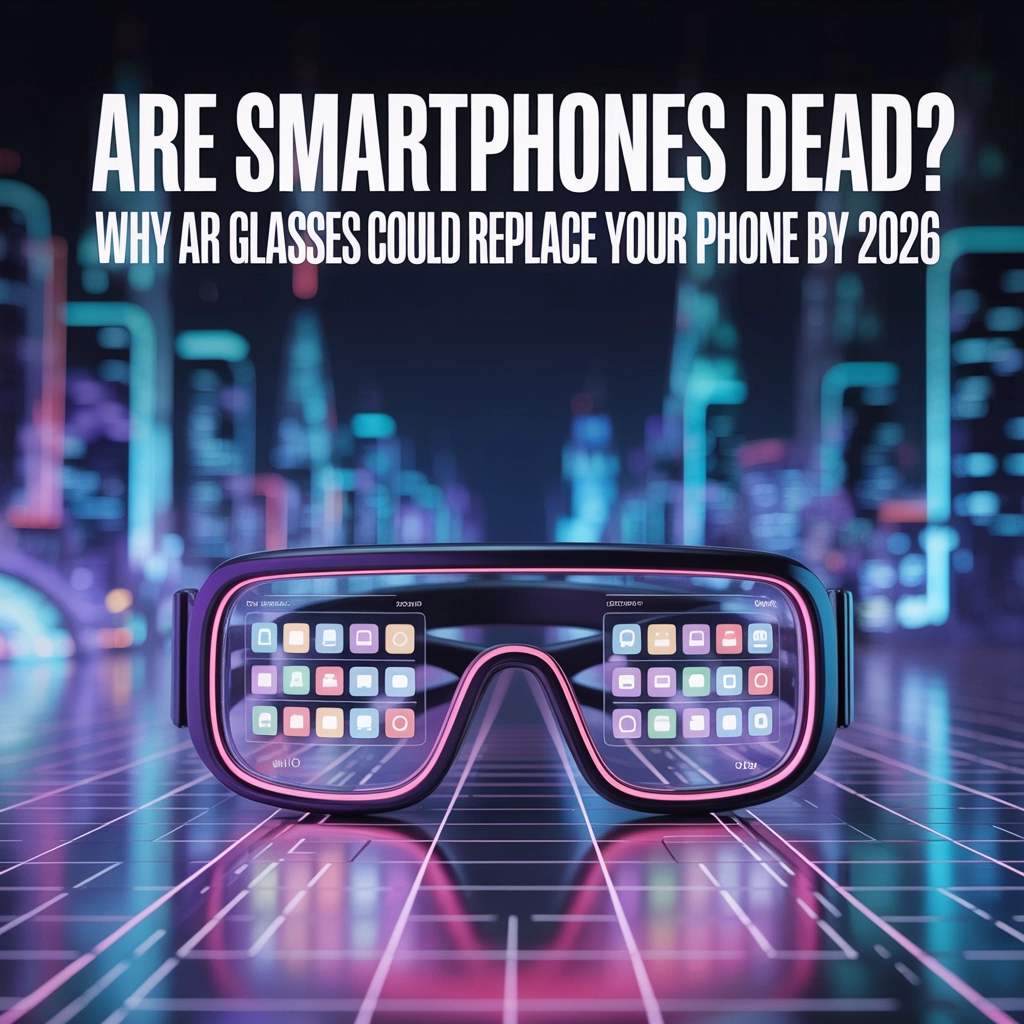Remember when everyone said tablets would kill laptops? Or when smartwatches were gonna replace phones entirely? Yeah, that didn't happen. But here's something that might actually stick: tech giants are betting big that AR glasses will make your smartphone as obsolete as a flip phone by 2026.
Sounds crazy, right? Your phone does everything – it's your camera, wallet, entertainment center, and social lifeline all rolled into one pocket-sized device. But major companies like Samsung aren't just throwing around empty promises. They're putting real money behind a future where you'll ditch that screen for something you wear on your face.
Let's dig into whether this is another tech pipe dream or the real deal.
The Smartphone Market Isn't Dead, It's Just Tired
Your phone isn't dying – it's just having a midlife crisis. The global smartphone market is going through what experts call "market maturation," which is fancy talk for "everyone who wants one already has one."
Here's what's really happening: smartphone shipments are expected to decline in 2025, but not because people hate phones. It's because your current phone works just fine, thank you very much. Why drop $1,000 on the latest iPhone when your three-year-old model still handles everything you throw at it?

The numbers tell the story. IDC forecasts only 1% growth for the global smartphone market in 2025, while average prices keep climbing. In India – one of the world's biggest phone markets – shipments hit 70 million units in the first half of 2025 with barely any growth year-over-year. But here's the kicker: the average selling price hit a record $275.
People aren't buying fewer phones because they don't want them. They're buying fewer phones because the ones they have are good enough. That's a problem for phone companies, but it's not exactly a death sentence for smartphones.
Samsung's Bold 2026 Bet
Samsung isn't waiting around for the smartphone market to recover. They're planning to launch smart glasses by late 2026, followed by a full AR version in 2027. But here's what's interesting – their first glasses won't even have a screen.
Instead, Samsung's focusing on practical stuff: built-in cameras, microphones, speakers, and an AI assistant. Think of them as AirPods with eyes and a brain. You'll be able to take photos, make calls, and chat with AI without pulling out your phone.

This strategy is actually pretty smart. Instead of trying to cram a tiny computer screen into glasses (which nobody really wants to wear), they're making glasses that do specific things really well. It's like how the first iPod didn't try to be a phone – it just played music better than anything else.
The timeline is aggressive, though. Samsung's betting they can get from concept to consumer shelves in less than two years. That's either ambitious or delusional, depending on how you look at it.
Why Your Phone Isn't Going Anywhere (Yet)
Let's get real for a second. I love the idea of ditching my phone as much as the next person, but there are some massive hurdles that smart glasses need to overcome first.
Battery life is the obvious one. Your phone dies after a day of heavy use, and that's with a battery the size of a small book. How long do you think tiny glasses will last? Samsung's first version might work for a few hours max.
Then there's the social factor. Remember Google Glass? People called users "Glassholes" because nobody wanted to be recorded all the time. That stigma hasn't disappeared just because the tech got better.
Here's what smart glasses need to solve before they can replace phones:
• Privacy concerns – people need to feel comfortable around you wearing them
• Battery technology – they need to last all day, not all morning
• Processing power – AI features require serious computing muscle
• Social acceptance – they can't look like you're wearing a computer on your face
• Price point – they need to cost less than a premium smartphone

I tried explaining this to my dad last weekend. He's still using an iPhone 8 and sees no reason to upgrade. When I told him about smart glasses potentially replacing phones, he just laughed. "Son," he said, "I can barely remember to charge my phone. You think I'm gonna remember to charge my glasses too?"
That's the thing – for most people, phones just work. They're familiar, reliable, and everyone knows how to use them. Smart glasses are starting from zero on all those fronts.
What This Actually Means for You
So are smartphones dead? Not even close. But they might be entering their awkward teenage phase where they're not the coolest kid in school anymore.
The more likely scenario is that smart glasses will start as companion devices. You'll use them for specific tasks – hands-free photos, voice calls while your phone stays in your pocket, quick AI queries. Your phone will still handle the heavy lifting: complex apps, mobile payments, detailed media consumption.
Think of it like how smartwatches evolved. Everyone predicted they'd replace phones too, but instead they became really good at doing a few things phones couldn't do well – fitness tracking, quick notifications, mobile payments. Smart glasses will probably follow a similar path.

The timeline for full smartphone replacement is probably closer to 2030-2035, not 2026. That gives companies time to solve the big technical challenges and for consumers to get comfortable with the idea of face computers.
By 2026, you might see early adopters wearing Samsung's smart glasses alongside their phones. The glasses will handle some tasks, the phone will handle others. It's evolution, not revolution.
The real question isn't whether smartphones will die – it's what role they'll play in a world where we have multiple ways to access our digital lives. Will your phone become like your laptop, something you use for serious work but not casual browsing? Or will it transform into something we haven't imagined yet?
What do you think – are you ready to trade your smartphone for a pair of smart glasses, or does the whole thing sound like another tech fad waiting to fizzle out?







